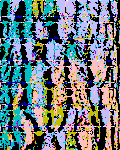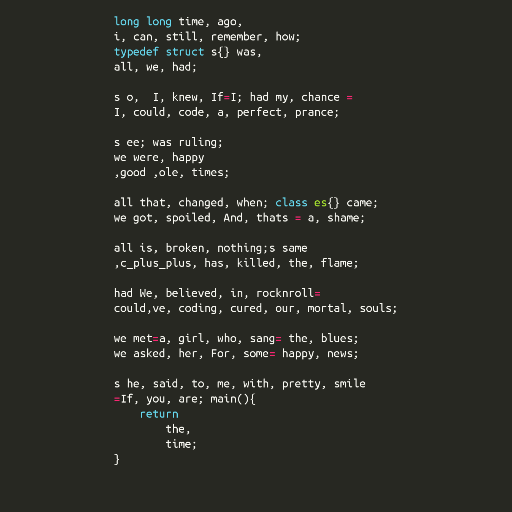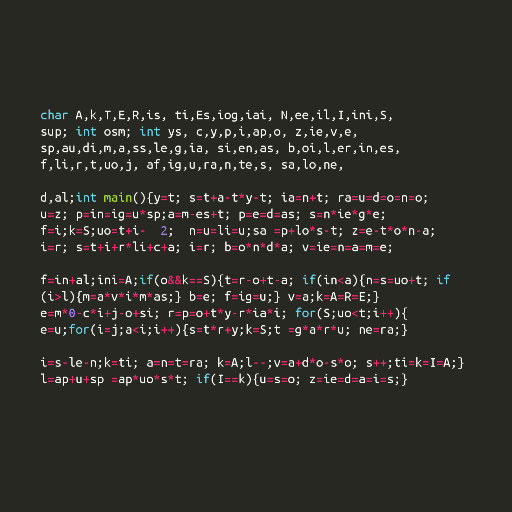Programmers use code to create apps, websites, cool new features and more. But, in a recent contest, they displayed a new way to utilize code: poetry. The Source Code Poetry 2015 contest showcased programmers who turned their computer skills into literary skills.
“Real professionals know their stuff,” according to the contest’s website. “Real professionals talk, think, breathe and sleep about their stuff. Real professionals need no excuse. They seek perfection. Real programmers can code poetry.”
The contest had four rules: 1. It must be written in either Java, C# or C++ (because dynamical programming languages would make the contest too easy). 2. It must compile. 3. It must rhyme. 4. It must be cool. The winners were split into three categories: The Bend the Rules category, the Best Compilable Poem category, and the Popular Vote category.
(Related: Artists use code to make art)
The winner of the Bend the Rules category went to Daniel Holden, who used the Piet programming language to create a poem that visually looks like a cortex of a tree, outputs a haiku, and gives a hypnotic effect.
“What makes it to stand out from all the crowd of similar entries this year? Short answer: artistic value,” the website said of Holden’s code poem. “Laconic, precise, enchanting artwork that can be seen by everyone, but only those true source code professionals are able to appreciate it fully.”
The winner of the Best Compilable Poem, Done Lean, chose to use C++ to write a nostalgic poem about how they felt about classic C:
“Long long time, ago,
I, can, still, remember, how;
typedef strct s{} was,
all, we, had;”
“From a technical perspective, the poem is a pure nugget: There are neither #include’s nor #define’s, nor any other boilerplate code—the whole text is a smooth human-readable text,” said the people at Source Code Poetry. “[The] Author only uses the ‘class’ keyword to make his point—classes are unnecessary for writing good code (there’s no such thing that couldn’t be coded in the bytecode as well).”
And the winner of the Popular Code went to an anonymous submitter who wrote a poem in Lithuanian.









